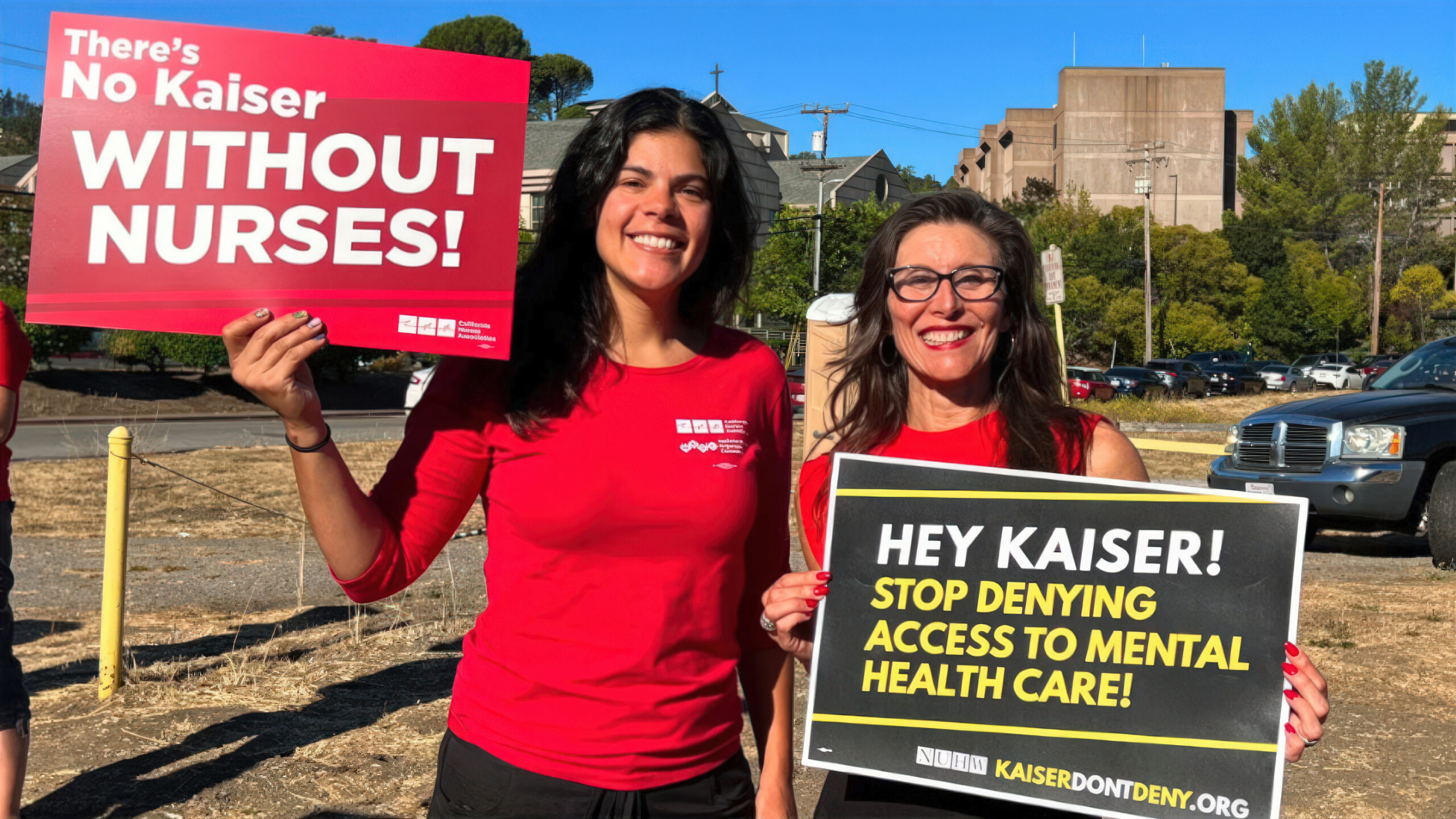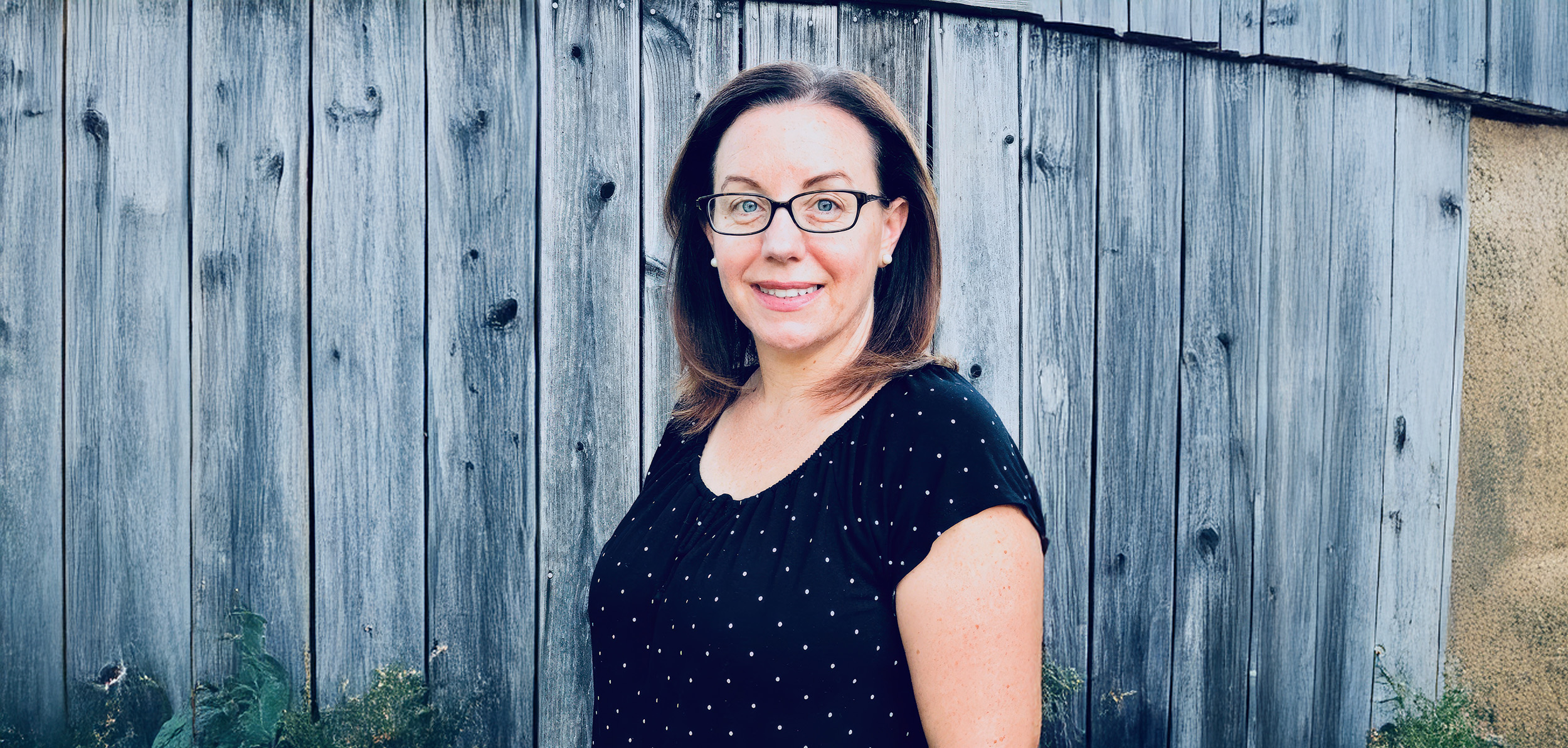Q&A: Former Kaiser therapist talks about going into private practice
Ann Rivello is a licensed clinical social worker, who went into private practice full-time in 2021 after a long career in mental health, including 12 years at Kaiser Permanente in the Bay Area. In this Q&A that is edited for length and clarity, Ann talks about her decision to go into private practice, and what changes are necessary to improve mental healthcare in California.
What made you decide to go into private practice?
The situation at Kaiser was getting less and less tolerable. We had less control of our schedule under Kaiser, which was a problem for me as a single parent with two kids. There was also a lot of ugliness from management. It seemed like they blamed us for their access issues. Each time we went on strike, we got letters about how we were abandoning our patients.
How did you go about transitioning to private practice?
I started my private practice in 2018 while I was still working for Kaiser. I joined panels with companies like Modern Health and Lyra that can fill up your schedule with patients and pay you directly. When COVID started I was in my room constantly working hard at both jobs, and having my own mental health crisis. I had to pick one, and staying at Kaiser wasn’t worth my mental health.
Did it take time to build up your practice?
When I gave my notice at Kaiser, I thought it would take time, but I filled up right away. I’ve never not had as many clients as I wanted. At first, some of those clients were from panels through companies where you negotiate a rate with them that’s lower than your regular rate, but I don’t need to do those panels anymore.
Why do you think you had no problem filling your schedule?
Part of that is the reality of being a therapist in the Bay Area. Part of it is also having worked here for a long time and people being familiar with my work. There are a lot of Kaiser alums out there. We all kind of know what we’re good at and refer out what we’re not as good at.
What has been your specialty in private practice?
I really like working with grief and loss — and catastrophic loss. A lot of people know I’m a cancer survivor. There are cases where a therapist will think of me, and know I’d be good at working with that person.
Has running a business been a challenge in terms of paperwork?
I actually spend less time on paperwork now than when I was at Kaiser. Kaiser had become ridiculous. The notes became templates that you could not close unless you filled it out the way they wanted you to fill it out.
It used to be that a private practice therapist needed to hire a biller, but there are services that include billing, marketing and note-taking. I have it fully automated. I don’t need any staff except me. My only expenses are my office and my health care.
Do you take insurance?
No. I’d like to but insurance companies can take a long time to reimburse you, and they have the right to clawback payments if they don’t think it meets medical necessity. As a small business owner, it’s hard to put yourself in a situation where someone could take money out of your pocket.
Is your practice mostly in-person or telehealth?
It’s still more telehealth, but I recommend in-person, at least initially.
What’s the difference in overall work between Kaiser and private practice?
In private practice a reasonable day is five or maybe six appointments. Kaiser was crazy. At Kaiser, you would routinely see eight people in a day and possibly do a group as well. It took me a while after I left Kaiser to realize that although I could see that many people, it wasn’t healthy for me, and it wasn’t healthy for them. By the time you see that 8th person, you’re spent.
Did the rigors of Kaiser prepare you well for private practice?
Yes. You get so much good experience with anyone who walks through that door, you feel comfortable doing any work with anybody. Nothing really phases me because of my work at Kaiser.
Is there anything you miss about working for Kaiser?
I miss having my health benefits through work. I think that’s the most daunting thing about going into private practice. I also miss being able to work with my colleagues as a team and seeing a broad mix of patients. I did like that at Kaiser you just kind of saw everybody.
Is there anything you do to replace the sense of camaraderie you felt at Kaiser and broaden your patient mix?
I do pro bono work for Bay Area Cancer Connections. I also have a couple patients who I’ll slide down on my scale, although I don’t do that generally. I enjoy working by myself, but I belong to a number of associations of therapists who practice the same type of therapy that I practice. These associations meet regularly and have trainings, so that’s one way to stay connected.
What do you like most about private practice?
In private practice, I see people get better. It’s very rewarding. At Kaiser, you were putting on bandages all the time. You could never get to the root of the problem. When people contact me, I know I can help them. I didn’t feel that way at Kaiser.
Having worked in private practice, what needs to change in order to improve access to care?
We’ve never seen true parity. In some respects the underlying problem is the same at Kaiser as it is in private practice, which are the insurance companies. I see it on message boards all the time. People go into the profession with good intentions, but they can’t make ends meet because insurance companies hold all the power.
How do insurance companies misuse their power?
A: Insurance companies don’t disclose reimbursement rates. They require an onerous amount of paperwork; they don’t pay out for 90 days; and they can try to clawback what they do pay out. Therapists aren’t supported like other healthcare professions. There’s just this expectation that we’re a nice bunch of people who don’t advocate for ourselves, and that’s a big reason why people burn out. I’m lucky that I’m in a position to set my rate because I’ve done this work for so long.
Have you seen people suffer because health plans aren’t providing parity for mental health care?
Yes. If you have insurance, you should have mental health coverage. Health plans should be paying for it, but they’re not. When the fair and equitable rate for an appointment is more than $200 and the reimbursement rate rate is only $80, that’s not parity. So many moms call me, trying to find someone for their teenager who’s suicidal, and they get put on a waiting list and don’t get a call back. Or they are given a list of therapists that they call, but they’re not actually accepting patients anymore or the phone numbers aren’t accurate. They call that a ghost list because you call but no one calls you back.
What do you say in those situations?
I have a lot of empathy. I tell people to talk to the insurance company. Advocate for yourself. If parity was truly enforced, it would be a lot easier to get timely mental health therapy appointments. It should be just like oncology because by the time people make a decision to come to therapy, they’re really hurting.
If private insurance improved, would you take it?
Yes. If Kasier could put people through a screening and determine someone should see me, I’d see them as long as I could get paid a fair rate quickly, instead of having to submit all this paperwork to get paid three months later. Several counties are starting to increase reimbursement rates and streamlining the payment process to make it more desirable to work with county patients, but right now private insurers hold all the power and they don’t seem to want to make it easier for therapists.
Any advice to current Kaiser therapists?
I think there are pros and cons about private practice, but everyone I talk to says it’s going fine. It’s so unfortunate the harsh stance Kaiser has taken. It makes me sad that they haven’t shown any ability to appreciate their therapists. Hopefully that will start to change.






